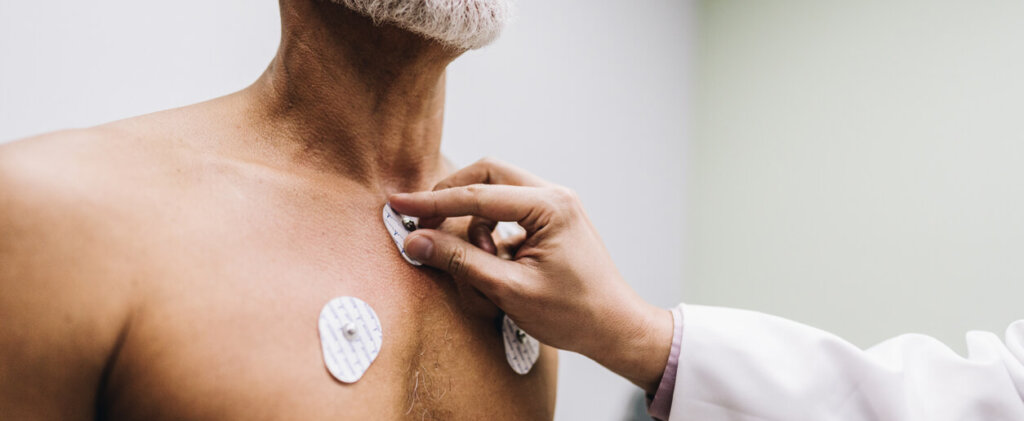Nassau County Stress Test Specialist

Why Are Stress Tests Done?
Stress tests can reveal whether a patient has coronary heart disease, heart valve problems, or other issues. In patients who have already been diagnosed with coronary heart disease or who have recently experienced a heart attack, the stress test may be used to determine whether their heart is able to handle exercise. Stress tests are often ordered for patients who recently had procedures like angioplasty or coronary artery bypass grafting. The stress test can reveal how effective the treatment was.
How Does the Stress Test Work?
During a stress test, the patient will be accompanied by a member of the medical staff at all times so that their health status can be closely monitored. The nurse or medical technician will place sticky pads containing electrodes on the chest as well as the arms and legs. Those electrodes are connected to the EKG machine via long wires. During the stress test, the patient will also be monitored via a blood pressure cuff. In the most common type of stress test, the patient will simply walk on a treadmill while the EKG machine and blood pressure machine monitor their heart rate and blood pressure continuously. When patients aren’t physically well enough for exercise, they may have a chemical stress test instead. In this type of stress test, drugs like Dobutamine or Adenosine are injected to simulate the effects of exercise.
What Should Patients Do Before Having a Stress Test?
Patients are normally required to fast, excluding water, for at least 4 hours prior to the stress test. Caffeine should be avoided for at least 12 hours before the stress test, as it can elevate the heart rate and interfere with results. The doctor will tell patients if they need to discontinue heart medications on the day of the stress test. Patients should wear lightweight clothes and athletic shoes.
Cardiovascular Wellness Specialty Care, P.C. serves all of Long Island, New York, with locations in Lake Success and Hicksville, including Nassau County, Suffolk County, Great Neck, Manhasset, and surrounding areas.





